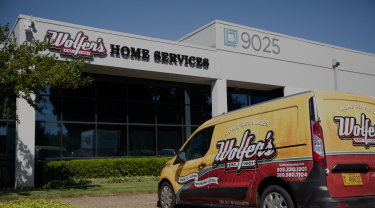Should You Add a Heat Pump?
Homeowners and business owners in Vancouver, WA, need systems that keep indoor temperatures comfortable year-round. Even though Vancouver is temperate, residents still experience cold days in winter and hot days in summer. Living and working are easier when indoor temperatures are agreeable.
Historically, Vancouver home- and business owners have installed Heating, Air Conditioning systems that contain both air conditioners and furnaces or heaters. However, there is an alternative: heat pumps.
What Is a Heat Pump?
Heat pumps are pieces of equipment that replace standard air conditioners and furnaces in homes and buildings. They utilize a technology in which they extract heat from one environment (indoors or outside) and transfer it to another environment, conditioning the air (heating or cooling it) in the process.
Heat pumps have some similarities to standard Heating, Air Conditioning systems. They use refrigerant and have some of the same parts such as compressors and evaporation coils.
While air conditioners can only cool air and furnaces can only heat air, heat pumps can produce either hot or cold air.
More and more Vancouver residents and commercial property owners are choosing to install heat pumps either in new builds or as replacements when old Heating, Air Conditioning components must be replaced. For the best heat pump contractor Vancouver has, call Wolfer’s.
Do Heat Pumps Save Money?
Yes. Heat pumps save money on utility bills because they operate more efficiently than air conditioners, heaters, and furnaces.
Heat pumps range in price from around $1,500 to almost $10,000. Averaged out, the standard heat pump price falls between $4,000 and $7,000. The cost of your heat pump will depend on its size and the quality and type of pump you select. As with all equipment across industries, heat pumps vary in quality from economy-grade to high-end. (Surprisingly, air conditioning systems are not much cheaper to buy and install than heat pumps.)
Studies show that using a heat pump instead of a standard Heating, Air Conditioning system can save 30% on cooling and heating bills. The United States energy offices state that heat pumps can operate at as little as 25% of the operating costs of standard Heating, Air Conditioning appliances.
How is this so? Because heat pumps only require a small amount of electricity to extract and transfer heat. Heat pumps generate up to three kilowatts of heat for every kilowatt of power they consume.
If the average Vancouver family’s monthly energy bill is $300 and 40% of that goes to heating and cooling, that is $120/month. A 30% reduction equals $36 of savings per month, which equals $432 per year, or $4,320 over ten years. That savings would offset the cost of a $4,000 heat pump. Maintained, a heat pump can last for over 15 years.
Sometimes homeowners who install heat pumps qualify for tax credits which results in more savings.
Heat pumps take up less space than standard Heating, Air Conditioning components which, while not a money saving benefit, still makes them attractive alternatives to air conditioners and furnaces.
Types of Heat Pumps
There are three types of heat pumps:
- Air-to-air
- Gas-fired
- Geothermal
Air-source Heat Pumps
The air-to-air heat pump is the most common type installed by Vancouver homeowners and commercial property owners. This type of heat pump transfers heat from inside to outside or vice versa, depending on the season. It uses up to 50% less electricity than conventional heaters. It also dehumidifies air more efficiently than central air conditioners, elevating comfort in high-humidity months.
Improved technology has made air-to-air heat pumps viable options in places with cold weather.
Some Vancouver homes and buildings do not have ductwork. For these structures, mini-split (ductless) heat pumps can be installed. “Reverse cycle chiller” heat pumps are another kind of air-source pump. This type produces hot and cold water instead of air. Homes with radiant floor heating systems benefit from installing a reverse cycle chiller heat pump.
Gas-fired Heat Pumps
Gas-fired, or absorption, heat pumps are fueled by sources such as propane, natural gas, solar-heated water, or geothermal-heated water instead of by electricity. They are often called gas-fired heat pumps because natural gas is the most used fuel source.
Gas-fired heat pumps utilize ammonia rather than refrigerant.
Geothermal Heat Pumps
These heat pumps transfer heat between structures and the ground (or a water source nearby) instead of the air. Installation costs are typically higher than that of air-source heat pumps, but they cost less to operate. They have several significant benefits:
- They reduce energy use by 30-60%
- They control humidity well
- They are robust and dependable
- They are suitable for a range of homes and buildings
- They can be used in regions with more extreme temperatures
Heat Pump Installation and Repair Contractor Vancouver, WA
Heat pumps must be professionally installed, serviced, and repaired. Vancouver residents and commercial property owners need the best heat pump company Vancouver has.
Call Wolfer’s for your Vancouver heat pump installation and repair.






